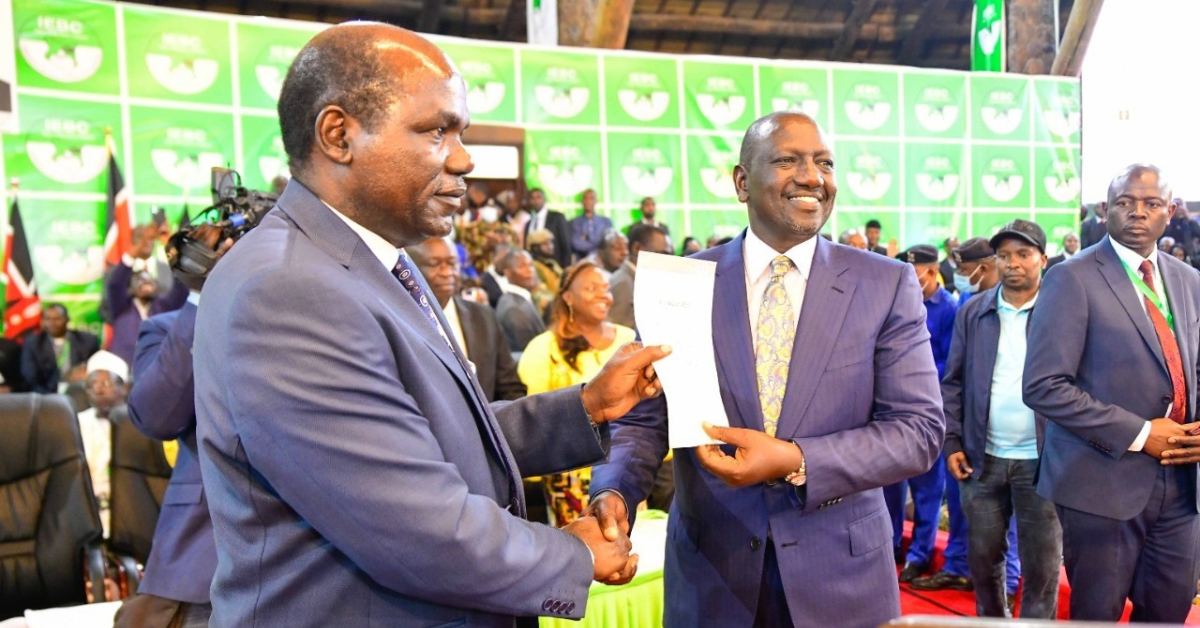By the time you read this, the Supreme Court will either have rendered (unlikely) or about to render (likely) its decision on the case challenging IEBC’s announcement of Hon Uhuru Kenyatta as the winner of the March 4 presidential contest. Beyond the ruling; and beyond even the outcome of a re-run – if there is one – the whole political contest has thrown up dynamics whose interplay will shape the Kenyan state into the foreseeable future.
First, it is not true that this election has been peaceful. Peace, as you would agree, is not just the absence of war or violence. It is freedom from disturbance; a sense of quiet and tranquillity. The ferocious tribal clashes waged in the digital forum called social media – puts paid to the notion of having had a peaceful election. In that arena, it is war minus the shooting. These cyberspace duels make two things very clear: the distance between digital slash and burn and actual physical combat is not as far as you might think; and, hatreds run deeper than we are willing to admit.
When you look beneath all the sound and fury, the grievance can be reduced to a primitive denominator: tribal competition. One side accuses the other of serial thievery and domination; the accused side responds with a you-can-do-nothing-about-it shrug. There is much huffing and puffing; insults are traded freely.
The country is split along this primitive narrative. The new presidency will need to move courageously and with speed to address this dangerous rift.
Second, there is more than a whiff of intolerance from a coterie of senior state officials and their backers who see themselves as critical midwifes of the new order. It is an important role during this delicate transition. And yet, in their zeal, they have created the impression that anyone who criticises their actions is a tool in the hands of Kenyan enemies. It is, incredibly, a widespread view – held as fervently by a barber as by a college professor. There is almost a religious vehemence in their believe that some Kenyans (Raila and Justice Mutunga are frequently mentioned) are in the service of foreigners. A bunch of nonsense to be sure, but their believe is so strong that they cannot, for example, countenance a Raila presidency. They are so blinded by their hatred of him that they would rather have the country burn than see him ascent to power.
Such a stance only deepens the sense of grievance among ardent Raila supporters; a grievance whose intensity makes many wonder: if their man were to finally hold the knife and the yam in his hands, would Raila have the strength, courage and wisdom to hold back some of those in his camp itching to exact their pound of flesh?
Whilst these – the duelling hatreds, the festering grievances – are serious challenges facing the new president, they pale in comparison to the more personal task of taming what I call the Alpha Male impulse. Whether it is a UhuruRuto or a RaiLonzo presidency, both president and his deputy will have to find ways of taming their egos in order to forge a co-existence, a modus vivendi if you will, that allows them to work and deliver results for Kenya. The Deputy President, unlike yesterday’s VP, will not be serving at the mercy of the president. In a “nusu mkate” arrangement such as that of Uhuru and Ruto, things could get tricky pretty quickly. Uhuru and Ruto seem to have good personal chemistry. This will help. But both will need a circle of wise patriotic men to help them conduct ‘difficult conversations’ that will inevitably come. One hopes that this team will be highly motivated to positively transform the country as a strategy to offset, indeed wash off, the ICC stain. That would be a pleasant surprise.
The chemistry between Raila and Kalonzo appear different. One does not get the sense of mutual trust and friendship among these two. One instead sees a façade – egos carefully kept in check to give the appearance of amity. But appearances can be deceiving. It is quite possible that they too can keep their Alpha Male impulses in check to our pleasant surprise.
But beyond the presidency, the need to tame egos is equally urgent in the new crop of senators, governors and members of parliament. Already some MPs have vowed to agitate for higher salaries. Their honourable egos were so insulted by the small salary of half a million shillings per month that they have vowed to dissolve the Salaries and Remuneration Commission! Such are the misadventures of the VIP syndrome.
In his ‘Hopes and Impediments: Selected Essays’, the late Chinua Achebe put it beautifully: “Privilege… is one of the great adversaries of the imagination; it spreads a thick layer of adipose tissue over our sensitivity.” That is why these MPs are not sensitive to the fact that the lowest paid worker receives only five thousand shillings– hundred times less than what they get.
—–
The writer, who is based in Arusha, Tanzania, comments on topical issues.

